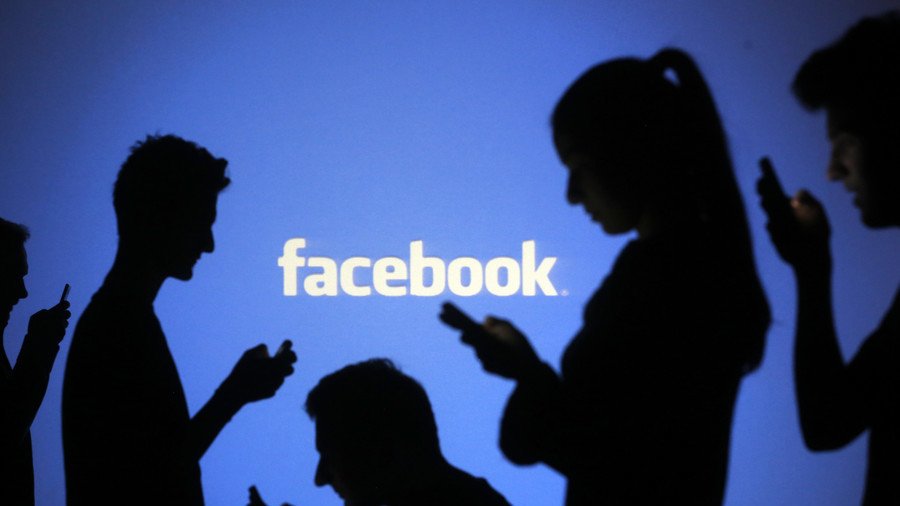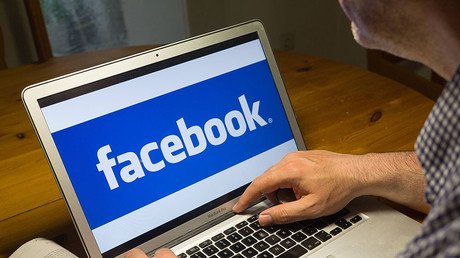Facebook was tagging some users as 'interested in treason' – guess who media said would misuse data?

It has emerged that Facebook used a "treason" tag to mark some of its users. When Danish media reported that FB had since discontinued the label, it also decided to single out only ‘evil Russians’ as possible abusers of the data.
The US social media giant effectively labeled tens of thousands of people all over the world as "interested in treason" for the sake of … advertising, Danish public-service broadcaster Danmarks Radio (DR) reported on Wednesday, explaining that "treason" was one of the tags used by Facebook's automatic algorithm to identify, for advertisers, its users' interests.
It is unclear how long the social network had been using the controversial tag as well as how many users were affected by it. However, when the Danish media contacted Facebook to draw its attention to the disturbing discovery, the US company promptly admitted that the tag was "troubling" and proudly said as it already deleted it a week ago.
"'Treason' was included as a category given its historical significance," Facebook spokesman Joe Osborne told the media, in an apparent attempt to explain why the bizarre tag was used in the first place. He went on to say that Facebook "removed it as an interest category," given that "it is an illegal activity."
These arguments still apparently seemed unconvincing to DR as it rhetorically asked, in its report on the issue, what purpose this tag could possibly have in advertising. However, the Danish media was in fact much more preoccupied by an entirely different matter – namely by the alleged misuse of this tag by the West's almost traditional boogeyman – Russia.
'Evil FSB watches over you'
When Danish journalists stumbled upon this awkward Facebook practice, the first thing they thought about was Russia. The DR piece on the issue does not mention any nation except for the Russians, even though Facebook admitted that the tagging practice was worldwide. However, they took the trouble of counting exactly how many Russians using Facebook were labeled as "interested in treason" only to warn readers that as many as some 65,000 people could be subjected to "persecution" by Russian security services as a result of the social media giant's callous actions.
In contrast with the usual MSM narrative, which prefers to see Russian meddling virtually everywhere, especially when it comes to internet and social networks, this particular Danish coverage ironically focused on how the groundless "treason" label was dangerous and misguided because … it could be used by the Russian government to identify potential turncoats and crack down on its own people.
DR also could not help but yield to temptation and remind its readers about the allegedly extremely poor situation with human rights in Russia against the background of the 2018 World Cup, hosted by this nation, which has been considered a success so far.
"These methods, which Facebook has probably unwittingly given the Russian authorities, make it much easier for governmental agencies to systematically track persons marked as potential traitors," Mette Skak, an associate professor at the Aarhus University, who is also identified as a "Russia expert" by DR, told the Danish media outlet.
The tools that Facebook unintentionally provided the scary Russian security services with might even lead to the rise of "post-modern Stalinism," Skak warned, in another outburst of scaremongering.
The DR piece also goes to great lengths to explain how the Russian security services can use the controversial tag to identify and eventually track down any affected person. However, it admits that it actually has no evidence of the Russian authorities ever using Facebook for such purposes.
READ MORE: It’s not a conspiracy theory – your phone really is watching you, research finds
At the same time, it cited some experts who said they have "no doubts" that an intelligence service is probably already doing "something like this" and would be definitely "keen on" exploiting Facebook's weakness to snoop on its own people.
Notably, any other security and intelligence services, including those that were indeed caught spying on their own citizens as well as on people in other countries, were conveniently left out of the account in the DR article, as well as other media reports on the issue, which also preferred to mention only Russia. After all, it is only "scary Russia" that Western people should be worried about.
Like this story? Share it with a friend!
















